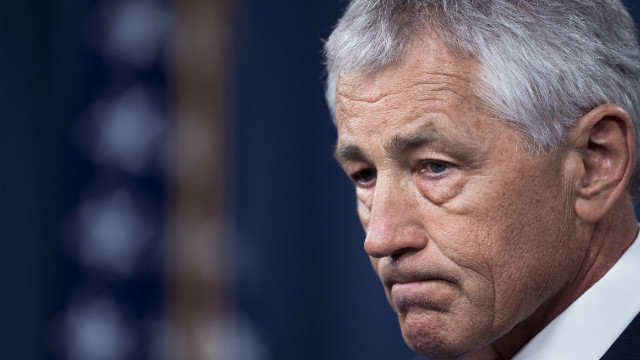
From Lolita C. Baldor, AP: Defense Secretary Chuck Hagel arrived in Afghanistan Friday for his first visit as Pentagon chief, saying that there are plenty of challenges ahead as NATO hands over the country’s security to the Afghans.
"We are still at war," Hagel said, warning the U.S. and its allies to remain focused on the mission while noting that the U.S. never intended to stay in Afghanistan indefinitely.
"That transition has to be done right, it has to be done in partnership with the Afghans, with our allies," said Hagel, who took over the Pentagon job a little more than a week ago. "Our country as well as Afghanistan, the region, and the allies have a lot at stake here. And our continued focus and energy and attention on Afghanistan is going to be very important. . . ."
His unannounced visit comes at a turning point in the conflict, as U.S. and NATO allies set their timetable for the withdrawal of combat troops and pressure mounts on the U.S.-led effort to train the Afghan forces. Hagel must manage the transition as the U.S. steps up what will be a difficult and expensive extraction of equipment from the country even as Congress slashes billions of dollars from the defense budget.
"I need to better understand what’s going on there," Hagel told reporters during the flight to Kabul. He said he wants an assessment on the progress of the Afghan forces as they prepare to take over the security of their own country. . . .
There are currently about 66,000 U.S. troops in Afghanistan, down from a peak of about 100,000 in 2010. The U.S. troop total is scheduled to drop to about 32,000 by early next year, with the bulk of the decline coming over the winter months.
And, while there has been no final decision on the size of the post-2014 force, U.S. and NATO leaders say they are considering a range between 8,000 and 12,000. The size of that residual force is sharply smaller than what the top U.S. commander in the Middle East recommended. Gen. James Mattis, head of U.S. Central Command, told the Senate Armed Services Committee earlier this week that his personal recommendation was for a U.S. force of 13,600, with the expectation that NATO allies would contribute another 6,000 to 7,000. . . .
The U.S. is currently in the early stages of negotiating a bilateral security agreement with Kabul that would set the legal parameters for America’s continued military and diplomatic involvement with the nation.
Another source of anxiety among the allies is Afghanistan’s 2014 presidential election; [Hamid] Karzai, who has led the country since U.S. forces toppled the Taliban in late 2001, is not running and there is no obvious successor. (photo: CNN)
Image: cnn%203%208%2013%20Hagel.jpg
